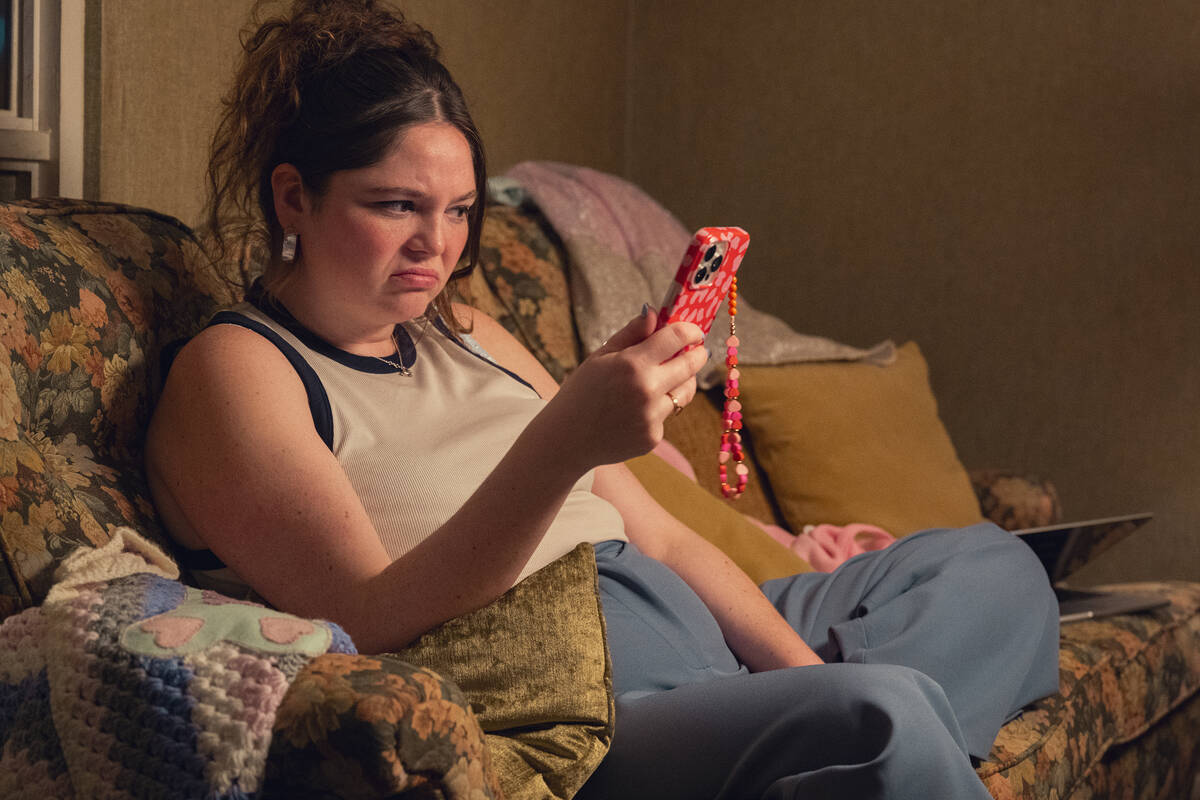Lena Dunham returns to TV and takes on the rom-com
There’s a moment in “Too Much,” Lena Dunham’s new Netflix comedy starring Megan Stalter, in which Stalter’s character, Jessica — a brash American Anglophile navigating life in England, which isn’t what she expected — goes on a metafictional rom-com rant.
“I wanted to be in bed with Hugh Grant from the British Jones’s Diaries,” she yells at Felix (Will Sharpe), the charming, floppy-haired but feckless indie musician she falls in with shortly after arriving in London.
“Did you say ‘British Jones?’” he says. (“She’s British!” Jessica retorts.)
It is, in context, a weirdly great joke; that slip from Bridget to British is one of the show’s many silly-smart acknowledgments of its predecessors, and one of many send-ups of how powerfully rom-coms have shaped expectations about life and love — and trained people to classify each other as “the mistake” or the “happy ending.”
Jessica is in many respects a Bridget Jones figure: Unpolished but hopeful, hardworking, lustful and sad, she’s recovering from a bad relationship with Zev (Michael Zegen). She even has a diary of sorts. Here, that takes the form of a series of videos haranguing Zev’s new girlfriend, Wendy (Emily Ratajkowski), an influencer whose posts Jessica obsessively monitors even as she tries to start a new life.
In genre terms, Jessica isn’t just our hero. She’s also the crazy ex obsessing over Wendy’s perfect, filtered representation of her camera-perfect life. Her own adventures as an expat are, by contrast, amusingly anti-cinematic.
Dunham has described “Too Much” as an homage to the rom-coms she grew up watching. But Dunham has always been an innovator, and her intervention here is to begin approximately where the conventional rom-com ends.
She acknowledges a few autobiographical elements in “Too Much” (she herself moved to London for work in 2021, where she met her husband) but wrote the series with Stalter in mind. She cast herself as Jessica’s older sister Nora, who has moved back in with their mother (Rita Wilson) and grandmother (Rhea Perlman) after her ex-husband (Andrew Rannells) left her and their son to explore his sexuality.
It’s a wonderfully gothic little setup that could easily justify its own spinoff.
Jessica’s work world remains thin by contrast. There’s a paint-by-numbers quality to her colleagues that clashes with the intense, well-drawn, Dunhamesque specificity of scenes featuring her family and Felix’s — and a very bizarre dinner party, and a marvelously uncomfortable wedding. The series benefits from a murderers’ row of cameos, from Naomi Watts to Stephen Fry to Andrew Scott.
Stalter is terrific — and vulnerable — as Jessica. Insightful, impulsive and odd.
Sharpe brings a lot of grounded, relatable sweetness to a role that drifts dangerously close to caddishness.
“Too Much” doesn’t dig its way out of the rom-com into something else. It isn’t trying to judge or to correct. That might, ironically enough, be the one way it departs from the formula it so lovingly deconstructs and honors. Rom-coms are bossy and epiphanic. They’re social manuals about how people need to change in order for lasting love to find them.
There’s some welcome humility in how gently “Too Much” opts out of most of that — for better and for worse, in sickness and in health.
This is an excerpt from a Washington Post story.
"Too Much"
10 episodes, streaming on Netflix















